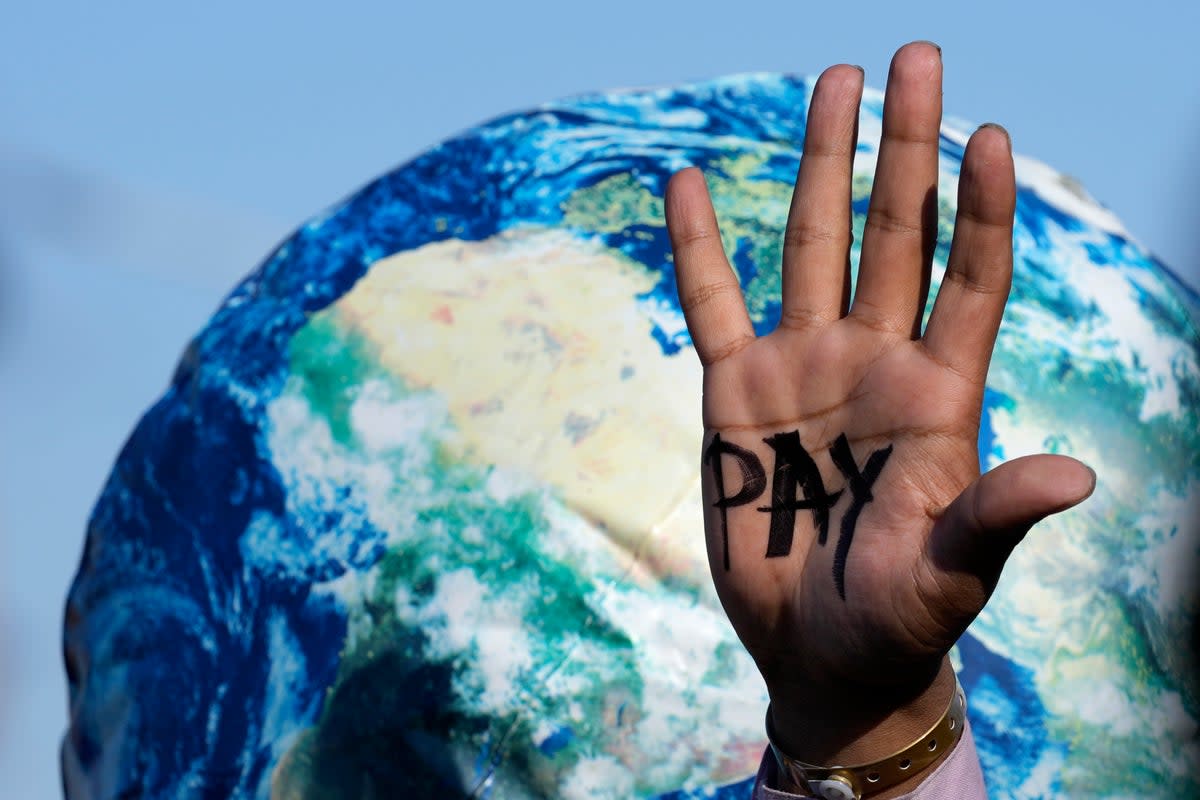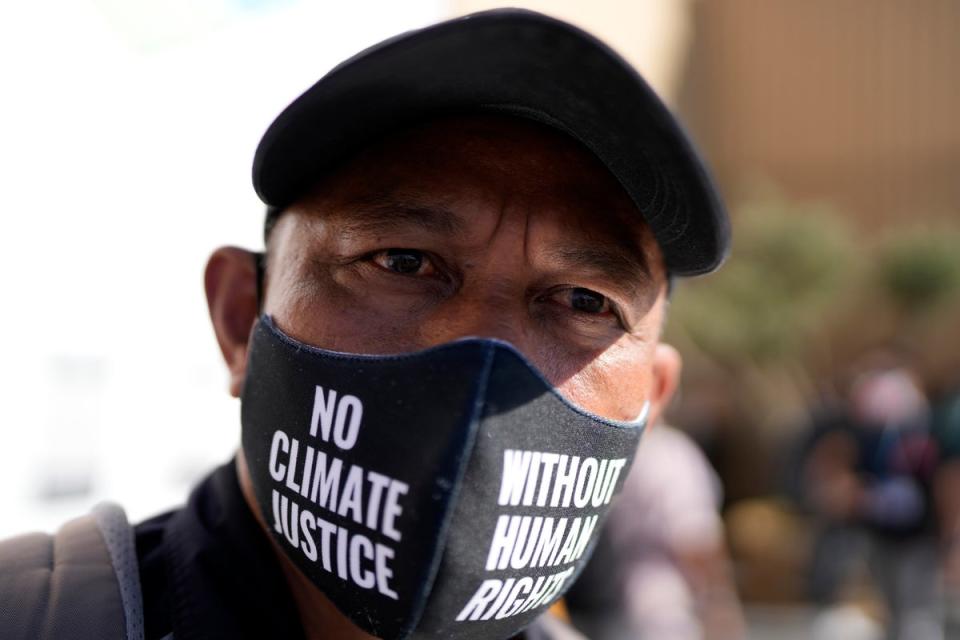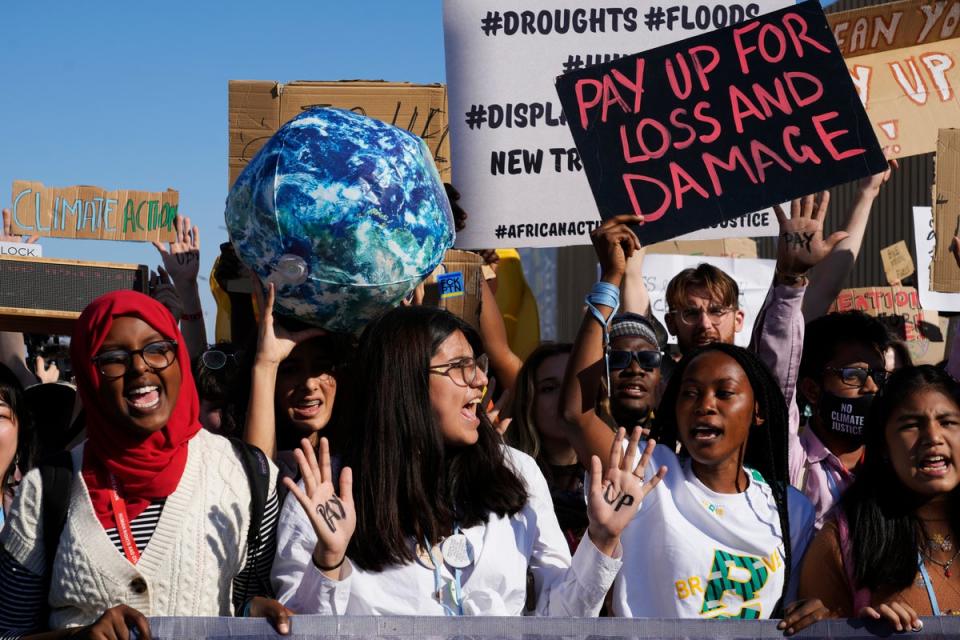Cop27: Key takeaways from the final agreement

There were moments when a final deal at Cop27 looked like it might never happen, but a breakthrough was finally made in Sharm el-Sheikh.
The decision was signed off by nearly 200 countries – from the major polluters and emerging economies to small island states – early on Sunday morning after a marathon overnight session.
Here are some key takeaways from the 12-page agreement.
Loss and Damage
Cop27 reached a historic agreement on a fund to compensate developing countries for losses and damage caused by the climate crisis.
These countries, which suffer the most extreme impacts despite small carbon footprints, have called for loss and damage to be addressed for the past 30 years. The issue finally made it into Cop27 negotiations after the Egyptian presidency shepherded it onto the official Sharm agenda.
Rich countries, particularly the US, had long opposed a loss and damage fund fearing legal liability for years of spewing out greenhouse gas emissions. But they reversed their stances, leading to the breakthrough on what vulnerable countries see as a central matter of climate justice.
The agreement sets up a transitional committee, with representatives from 24 countries, that will establish how the fund should work, and where the money should come from.
The group will then present its recommendations at Cop28 in the United Arab Emirates in 2023, with a view to getting the fund up and running.
Keeps 1.5C ‘alive’ – but barely
Despite the progress on loss and damage, Cop27 was a failure on several fronts – most crucially on the necessary slashing of greenhouse gas emissions to keep the world at its 1.5C temperature goal.
At Cop26 in Glasgow, there was a major push to hold the world to its 1.5C (above pre-industrial levels) target – and not the less ambitious “well below 2C” – of the Paris Agreement with the acknowledgement that the world is already experiencing devastating climate impacts at around 1.2C of warming.
Many small island states and African nations say that failure to keep 1.5C “alive” would be a death sentence for their communities.

So in the Glasgow agreement, countries agreed to “revisit and strengthen” their 2030 climate plans by the end of 2022.
But in the past year, only a limited number have done so. The emissions-reduction plans submitted ahead of Cop27 would take less than 1 per cent off projected global emissions in 2030.
Scientists say global emissions must be cut by 43 per cent to hold temperature increases by the end of the decade to remain at 1.5C.
A number of “high ambition” countries pushed for the final Sharm el-Sheikh agreement to include a reference of the need to peak emissions in 2025 – the deadline for keeping 1.5C “alive”, according to the latest climate science. However, this failed to make the final text.
Alok Sharma, the Cop26 president, did not mince his words on the outcome. “Emissions peaking before 2025, as the science tells us is necessary. Not in this text,” he said.
Fossil fuels drop out
The final Cop27 decision failed to call for the winding down of all fossil fuel use – the primary cause of the global climate crisis – in a major blow to many countries and climate activists.
There was a failure to progress from Glasgow, with the Sharm agreement simply repeating the call for “accelerating efforts towards the phasedown of unabated coal power and phase-out of inefficient fossil fuel subsidies”.
The document again called for providing “targeted support to the poorest and most vulnerable in line with national circumstances and recognising the need for support towards a just transition”.
Earlier this week, India, supported by several countries and the European Union, proposed a statement on “phasing down” all fossil fuels in the Cop27 agreement.

Late on Saturday, the High Ambition coalition made a final push for the Cop27 pact to put the world on a path to phase out all fossil fuels amid strong pushback from countries with economies reliant on oil.
“We must emerge from Cop27 with a package of outcomes that keeps 1.5C alive and protects the world’s vulnerable,” said Tina Stege, the Marshall Islands’ climate envoy. She was joined at the briefing by Mr Sharma and Jennifer Morgan, Germany’s climate envoy, among others.
“This Cop decision must put the world on a path to phasing out all fossil fuels, and an urgent just transition to renewables,” she added.
Banks put on watch
The Cop27 text calls on “the shareholders” of multilateral development banks (MDBs) and other financial institutions to reform “their practices and priorities” to “ensure simplified access” along with a call to “define a new vision” so that they are “fit for the purpose of adequately addressing the global climate emergency”. It also calls for the financial bodies to take into account “debt burdens”.
This appears to reflect the focus on how climate finance works – and more importantly doesn’t work for many countries – which was a major issue at Cop27.
Small island states and other vulnerable countries used the summit to highlight how the money that is lent by MDBs to help countries recover from devastating impacts, such as hurricanes and extreme flooding, comes on vastly inequitable terms for developing nations.
Doubling down on the doubling of adaptation finance
In Glasgow, countries signed off on doubling the amount of finance by 2025 to help poorer countries adapt to climate impacts. This would pay for plans such as raising roads to evade sea level rise, restoring wetlands and coral reefs to buffer hurricanes, and creating infrastructure that doesn’t buckle in extreme heat. After a much-heated debate, this pledge stayed in the final Cop27 deal.
Wealthy nations had promised to deliver a total of $100bn (£84bn) in annual climate funding to poorer countries by 2020 (it’s at about $83bn, according to OECD analysis). The final agreement from Glasgow expressed “deep regret” for missing this target. Now, the agreement “expresses serious concern” that it has not yet been met and “urges developed country Parties to meet the goal”.

